Social Media Bullies Can Stunt Hunter Recruitment

By Kyle Wintersteen / Delta Waterfowl
A few years ago, the teenage daughter of a family friend killed the third-largest non-typical whitetail buck — and the largest ever taken by a female hunter — in Pennsylvania. It was an achievement she’d earned, having scouted the deer all summer, later encountering it sporadically during archery season and ultimately bagging it with a rifle.
 |
It was an incredible moment. A proud moment. But the experience was soon sullied by harassing social media “trolls,” which included both anti-hunters and, most frustratingly of all, folks who dare to call themselves sportsmen. Some objected to the concept of hunting entirely. Misogynists alleged that a female killing an animal was unnatural. And jealous hunters developed a conspiracy theory that the buck, which the young hunter had killed under the highest standards of fair chase, was shot within a high fence.
While these attacks on a young girl by grown adults surely hurt, she continued hunting given the overwhelming support of her parents, both of whom hunt, and her friends. But just imagine if she lacked that support network. What if she was a newcomer to hunting, perhaps 50/50 on whether she’d continue, and she was met with harassment or even threats for posting a photo on social media of a well-deserved turkey, duck or pheasant?
“Social media has absolutely made new hunters and hunters in general more accessible for negative feedback,” said Joel Brice, Delta Waterfowl’s vice president of waterfowl and hunter recruitment programs, and a member of The Hunting Wire’s Voice of Leadership Panel. “If a new hunter sticks his or her neck out there and gets lit up, that’s a problem. We as a community need to do a better job providing positive feedback to new hunters in our recruitment efforts.”
Given the issue’s rampant nature, I’d surmise that like me, you have personally experienced it. A stranger prone to violence and bunny hugging once sent a private Facebook message to me asserting I ought to be shot for my love of duck hunting (incidentally, I was informed that such language does not violate the social giant’s “community standards”). However, as seasoned, adult hunters who couldn’t quit the sporting life even if we wanted to, such comments typically roll off our backs. The same may not be true for newer hunters seeking positive affirmation of a new hobby, or younger hunters who tend to place greater value on the opinions of their peer group. (Admit it: In junior high, especially, you cared what people thought of you.)
“Of further concern, it’s pretty clear that people aren’t typically going after adult male hunters online, but rather women and children,” said Brice, who directs Delta’s HunteR3 (recruitment, retention, and reactivation) programs. “They seem to either lack the courage to attack men or find it more offensive that a woman or child would hunt. A simple internet search reveals a multitude of examples.”
Additionally, qualitative evidence suggests that “hero shots” of mammals, such as wolves or elk, arouse greater hostility than animals that anti-hunters are less able to identify with, particularly birds. The point is, when doing your conservation duty by mentoring a new hunter, consider the hunter’s age, gender and the type of hunt upon which you’re embarking. How likely is this individual to face unfair criticism if a photo were to be posted online?
“Part of mentoring new hunters in the digital age, especially those most vulnerable to online bullying, is preparing them for the fact that a fraction of society doesn’t think we ought to hunt at all,” Brice said. “Beginning hunters should be armed with the basic information needed to respectfully refute common criticisms and know better than to engage with someone who’s simply being abusive. Walk away or hit the block button.”
Certainly, you should provide your mentee with a brief overview of Pittman-Robertson funds, the North American Model of Wildlife Conservation, and why you personally choose to hunt. But also explain to him or her that regardless of anyone’s emotionally charged opinion, hunting is a natural part of being human. It is, as Dr. James Swan once wrote, “a very basic instinct programmed into the master computer of our species for survival purposes that has been elevated by ethics to become a ‘sport,’ which enables us to express our basic biological identity.”
Rudimentary instruction about “hero shots” and wildlife photography can also be helpful. Photos that fail to put the hunt in context, or worse, lack respect for the animal are sure to raise the ire of hunters and non-hunters alike.
“I’m not suggesting we should ever apologize for hunting,” Brice said. “But certainly, cleaning up any excessive blood and never boastfully posing on top of an animal are simple steps new hunters can take to tastefully share their hunts. Alternatively, posting a photo of the resulting wild-game meal can be a gentler way for newcomers to tell their friends about their new hobby.”
Several organizations have taken the lead in recruiting new hunters and ensuring their continued interest. Delta Waterfowl’s First Hunt — the largest waterfowl hunter recruitment program in North America — as well as the National Shooting Sports Foundation’s +One program, the National Wild Turkey Federation’s R3 program and others all stress the need to ensure participants are well informed about hunting’s role in conservation, and to engage with them far beyond the initial hunt. However, conservation and hunting organizations can’t be left to shoulder the entire load. It takes all of us.
“Online harassment can clearly be an impediment to recruiting new hunters, and therefore it’s a threat the future of conservation in North America,” Brice said. “We as the hunting community need a new approach. We have to prepare beginning hunters for the possible reactions to their new passion, while providing supportive, positive reinforcement of their endeavor. That’s critical to the second ‘R’ in HunteR3: retention.”
Kyle Wintersteeen of Bellefonte, Pennsylvania, is managing editor of Delta Waterfowl.
2020-2021 The Hunting Wire Voice of Leadership Panel
The Voice of Leadership Panel is an appointed six-person group of outdoor industry leaders who have volunteered to contribute their voices on key hunting and outdoor recreation issues to inform, inspire, and educate participants within our community.
- Jim Curcuruto, Hunting and Firearms Industry Consultant
- Mandy Harling, National Director of Hunting Heritage Programs, National Wild Turkey Federation
- Jenifer Wisniewski, Chief, Outreach and Communication, Tennessee Wildlife Resources Agency
- Jess Johnson, Legislative and Advocacy, Wyoming Wildlife Federation
- Joel Brice, Vice President, Waterfowl & Hunter Recruitment Programs, Delta Waterfowl
- Makayla Scott, Montreat College Shotgun Team
Facilitators:
- James “Jay” Pinsky, Editor, The Hunting Wire
- Peter Churchbourne, Director, NRA Hunter Leadership Forum
Original Source: The Hunting Wire

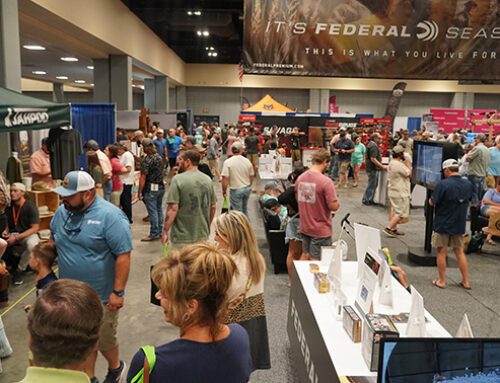
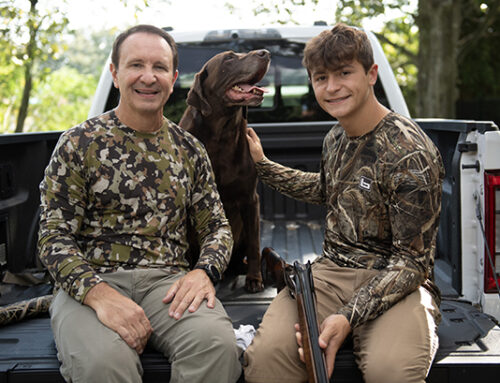
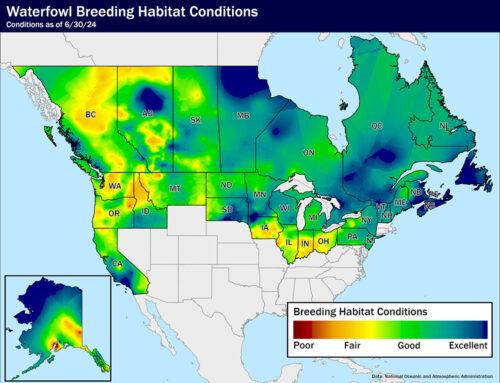
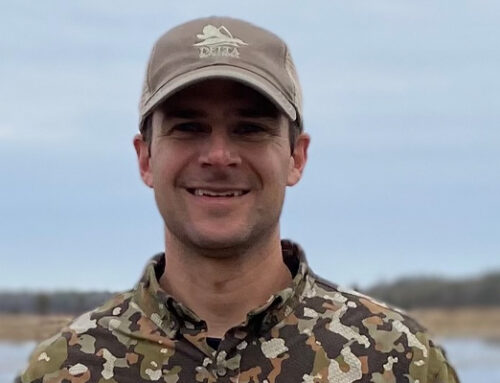
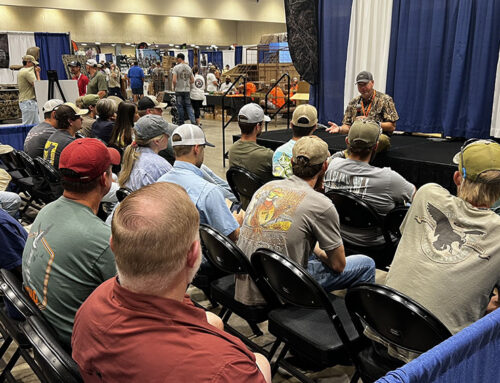
Leave A Comment